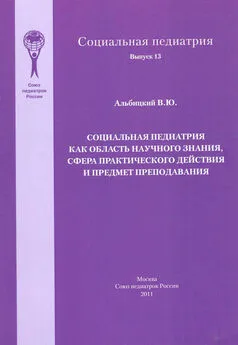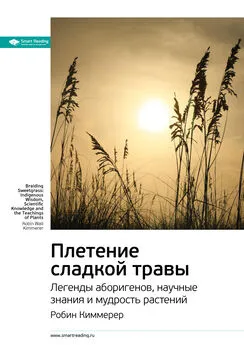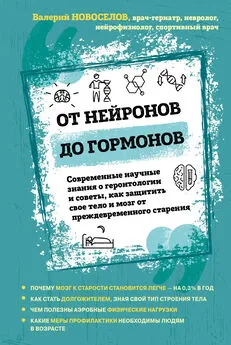Нико Штер - Власть научного знания
- Название:Власть научного знания
- Автор:
- Жанр:
- Издательство:Алетейя
- Год:2015
- Город:Санкт-Петербург
- ISBN:978-5-9905769-3-3
- Рейтинг:
- Избранное:Добавить в избранное
-
Отзывы:
-
Ваша оценка:
Нико Штер - Власть научного знания краткое содержание
В центре внимания социологов Нико Штера и Райнера Грундманна – вопрос о том, при каких условиях научное знание влияет на практическую политику и как именно организовано это влияние.
В поисках ответа авторы книги анализируют три кейса – экономическую теорию и политику Кейнса, науку о расах и ее роль в трагедии холокоста, а также исследования в области климатологии, их восприятие в обществе и их последствия.
Власть научного знания - читать онлайн бесплатно ознакомительный отрывок
Интервал:
Закладка:
Sanmann, Horst. 1965. „Daten und Alternativen der deutschen Wirtschafts– und Finanzpolitik in der Aera Brüning“, in: Hamburger Jahrbuch für Wirtschafts– und Gesellschaftspolitik 10. S. 109–140.
Sarewitz, Daniel. 1998. “Science in Policy: An Excess of Objectivity?”, in: Geological Society of America 30 (7). P. 202.
Sarewitz, Daniel. 2004. “How Science Makes Controversies Worse”, in: Environmental Science & Policy 7. P. 385–403.
Sarewitz, Daniel, and Richard Nelson. 2008. “Three rules for technological fixes”, in: Nature 456 (18 December). P. 871–872.
Sarewitz, Daniel, and Roger Pielke, jr. 2000. “Breaking the Global-Warming Gridlock”, in: Atlantic Monthly (July). P. 54–64.
Sarewitz, Daniel, and Pielke, Roger jr. 1999. “Prediction in Science and Policy”, in: Technology in Society 21. P. 121–133.
Scharpf, Fritz W. 1997. Games Real Actors Play. Actor-Centeres Institutionalism in Policy Research. Boulder, Colorado.
Scharpf, Fritz W. 1973. Planung als politischer Prozeß. Aufsätze zur Theorie der planenden Demokratie. Frankfurt/M.
Schattschneider, E. E. 1960. The Semi-Sovereign People. Hinsdale: Dryden.
Schell, Jonathan. 1989. “Our Fragile Earth”, in: Discover 10 (10). P. 44–50.
Schelsky, Helmut. 1976. „Die metawissenschaftlichen Wirkungen der Soziologie“, in: Becker, Werner, und Hübner, Kurt (Hg.) Objektivität in den Natur– und Geisteswissenschaften. Hamburg. S. 171–182.
Schelsky, Helmut. 1975. Die Arbeit tun die anderen. Klassenkampfund Priesterherrschaft der Intellektuellen. Opladen.
Scherf, Harald. 1986. Marx und Keynes. Frankfurt am Main: Suhr-kamp.
Schiller, Karl. 1987. „‘Wir sollten jetzt ein Zeichen setzen.’ SpiegelGespräch mit Karl Schiller“, in: Der Spiegel 45. S. 40–55.
Schleiermacher, Sabine. 2005. „Rassenhygiene und Rassenanthropologie an der Universität Berlin“, in: Jahr, Christoph (Hg.) Die Berliner Universität in der NS-Zeit, Band I: Strukturen und Personen. Wiesbaden. S. 71–88.
Schleiff, Hartmut. 2009. „Der Streit um den Begriff Rasse in der frühen Deutschen Gesellschaft für Soziologie als ein Kristallisationspunkt ihrer methdologischen Konstitutiton“, in: Leviathan 27. S. 367–388.
Schmölders, Günter, et al. 1956. John Maynard Keynes als Psychologe . Berlin: Duncker & Humblot.
Schmölders, Günter. 1962. Geschichte derVolkswirtschaftslehre. Reinbek bei Hamburg: Rowohlt.
Schneider, Stephen H. 1991. “Three Reports of the Intergovernmental Panel on Climate Change”, in: Environment 33 (1). P. 25–30.
Schneider, Stephen H. 2001. “What is dangerous climate change?”, in: Nature 411 (3 May). P. 17–19.
Schon, Donald A. 1963. The Displacement of Concepts. London: Tavistock.
Schumpeter, Joseph A. 1946a. “Science and Ideology”, in: American Economic Review 34. P. 345–359.
Schumpeter, Joseph A. 1946b. ‘John Maynard Keynes 1883–1946.’ American Economic Review 34: 495–518.
Schumpeter, Joseph A. 1949. “English Economists and the State-Managed Economy”, in: Journal of Political Economy 57. P. 371–382.
Schumpeter, Joseph A. [1912] 1951. Theory of Economic Development. Cambridge, Massachusetts.
Schumpeter, Joseph A. 1952. Ten Great Economists. London: Allen and Unwin.
Schumpeter, Joseph A. 1954. History of Economic Analysis. New York: Oxford University Press.
Scott, Daryl Michal. 1997. Contempt and Pity: Social Policy and the Image of the Damaged Black Psyche, 1880–1996. Chapel Hill.
Scott, James C. 1998. Seeing Like a State. How Certain Schemes to Improve the Human Condition Have Failed. New Haven.
Scott, Robert A., and Arnold R. Shore. 1974. “Sociology and Policy Analysis”, in: American Sociologist 9. P. 51–59.
Scott, Robert A., and Arnold R. Shore. 1979. Why Sociology Does Not Apply: A Study of the Use of Sociology in Public Policy. New York: Elsevier.
Searle, John. 1969. Speech Acts. An Essay in the Philosophy of Language. London.
Semple, Ellen Churchill. 1931. The Geography of the Mediterranean Region. Its Relation to Ancient History. New York.
Sen, Amartya. 1992. “Capability and Well-Being”, in: Nussbaum, Martha, and Sen, Amartya (Eds.) The Quality of Life. Oxford. P. 30–66.
Sen, Amartya. 1983a. “Liberty and Social Choice”, in: Journal of Philosophy 80. P. 5–28.
Sen, Amartya. 1983b. “Development: Which Way Now?”, in: Economic Journal . P. 745–762.
Sewell, Dennis. 2010. He Political Gene: How Darwin’s Ideas Changed Politics. London: Picador.Shackley, Simon, and Brian Wynne. 1995. “Integrating Knowledges for Climate Change”, in: Global Environmental Change 5 (2). P. 113–126.
Shapin, Steven. 1994. A Social History of Truth. Civility and Science in Seventeenth-Century England. Chicago.
Shapin, Steven. [1982] 1986. “History of Science and Its Sociological Reconstructions”, in: Cohen, Robert S., and Schnelle, Homas (Eds.) Cognition and Fact. Materials on Ludwik Fleck. Dordrecht. P. 325–386.
Shapiro, Michael G., and Bonham, Matthew, and Heradstveit, Daniel. 1988. “A Discursive Approach to Collective Decision-Making”, in: International Studies Quarterly 32. P. 397–419.
Shaw, Alison, and John Robinson. 2004. “Relevant but Not Prescriptive? Science Policy Models within the IPCC”, in: Philosophy Today 48 (5). P. 84–95.
Shearman, David J. C. and Joseph Wayne Smith. 2007. The Climate Change Challenge and the Failure of Democracy. Westport, Conn: Praeger.
Shell. 2010. “What are Scenarios?” www.shell.com/home/content/ aboutshell/our_strategy/shell_global_scenarios/what_are_scenarios/ what_are_scenarios_30102006.html (last accessed 19 March 2010).
Shepherd, John. 2009. Geoengineering the Climate: Science, Gver-nance and Uncertainty. Workshop on the Engineering Response to Global Climate Change. RS Policy, Vol. 1. Royal Society. Retrieved from http: // royalsociety.org/geoengineeringclimate/.
Shils, Edward. 1977. “Social Science as Public Opinion”, in: Minerva 15. P. 273–285.
Siebenhüner, Bernd. 2003. “tte changing role of nation states in international environmental assessments – the case of the IPCC”, in: Global Environmental Change 13 (2). P. 113–123.
Sieber, Sam D. 1981. Fatal Remedies. The Ironies of Social Intervention. New York.
Simmel, Georg. 1890. Über sociale Differenzierung: Sociologische und psychologische Untersuchungen. Leipzig: Duncker & Humblot.
Simmel, Georg. 1919. Philosophische Kultur: Gesammelte Essais. Second, Enlarged Edition. Leipzig: Alfred Kröner.
Simmel, Georg. [1907] 1958. Philosophie des Geldes. Berlin.
Sjoberg, Gideon. 1967. “Project Camelot: Selected Reations and Personal Reflections”, in: Sjoberg, Gideon (Hg.) Ethics, Politics, and Social Research . Cambridge, Massachusetts. P. 141–161.
Skidelsky, Robert. 1979. “He decline of Keynesian politics”, in: Colin Crouch (Ed.) State and Economy in Contemporary Capitalism . London: Croom Helm. P. 55–87.
Skildesky, Robert. 1992. John Maynard Keynes: Hopes Betrayed 18831920. London: Macmillan.
Skjxrseth, Jon Birger, and Tora Skodvin. 2001. ‘Climate Change and the Oil Industry: Common Problems, Different Strategies.’ Global Environmental Politics (November): 43–64.
Skocpol, Theda. 1987. “Governmental Structures, Social Science, and the Development of Economic and Social Policies”, in: Bulmer, Martin (Ed.) Social Science Research and Government. Comparative Essays on Britain and the United States. Cambridge. P. 40–50.
Skocpol, Theda. 1979. States and Social Revolutions: A Comparative Analysis of France, Russia, and China. Cambridge.
Skodvin, Tora. 2000. Structure and Agent in the Scientific Diplomacy of Climate Change: An Empirical Case Study of Science-Policy Interaction in the Intergovernmental Panel on Climate Change. Dordrecht: Kluwer Academic Publishers.
Smith, Cyril S. 1987. “Networks of Influence: The Social Sciences in Britain Since the War”, in: Martin Bulmer (Ed.) Social Science Research and Government: Comparative Essays on Britain and the United States . Cambridge: Cambridge University Press. P. 61–76.
Smith, David N. 1997. “Judeophobia, Myth, and Critique”, in: S. Daniel Breslauer (Ed.) The Seductiveness of Jewish Myth: Challenge or Response? Albany: State University of New York Press. P. 119–150.
Smith, James A. 1991. The Idea Brokers. New York.
Smith, Joel B. 2009. “Assessing Dangerous Climate Change through an Update of the Intergovernmental Panel on Climate Change (IPCC) ‘Reasons for Concern’”. PNAS Early edition: www.pnas.org_cgi_doi_10.1073_ pnas.0812355106.
Sombart, Werner. 1911. „Discussion“, in: Verhandlungen des Ersten Deutschen Soziologentages vom 19.-22. Oktober 1910 in Frankfurt am Main. Tübingen: J.C.B. Mohr (Paul Siebeck). S. 165.
Sorokin, Piritim A. 1928. Contemporary Sociological Theories: Through the First Quarter of the Twentieth Century. New York: Harper & Brothers.
Spahn, Heinz-Peter. 1976. „Keynes in der heutigen Wirtschaftspolitik“, in: Gottfried Bombach et al. (Hg.) Der Keynesianismus I: Theorie und Praxis keynesianischer Wirtschaftspolitik. Berlin: Springer-Verlag. S. 213292.
Spector M., and Kitsuse J. 1977. Constructing Social Problems. Menlo Park.
Spencer, Herbert. 1961. The Study of Sociology. Ann Arbor: University of Michigan Press.
Spencer, Herbert. 1887. The Factors of Organic Evolution. London.
Spencer, Herbert. [1862] 1873. First Principles. New York.
Stanfield, John H. 1985. Philanthropy and Jim Crow in American Social Science. Westport.
Starr, Kevin. 1986. Inventing the Dream: California through th Progressive Era (Americans and the California Dream). Oxford.
Strauss, Anselm L. 1978. Negotiations: Varieties, Contexts, Processes, and Social Order. San Francisco.
Stehr, Nico, und Grundmann, Reiner. 2010. Expertenwissen: Die Kultur und die Macht von Experten, Beratern und Ratgebern. Weilerswist.
Stehr, Nico. 1996. „tte Ubiquity of Nature: Climate and Culture“, in: Journal of the History of the Behavioral Sciences 32. P. 151–159.
Stehr, Nico. 1994. Knowledge Societies. London.
Stehr, Nico . 1992. Practical Knowledge: Applying the Social Sciences . London: Sage.
Stehr, Nico. 1991. Arbeit, Eigentum und Wissen. Zur Theorie von Wis-sensgesellschaten. Frankfurt/M.
Stehr, Nico. 1991. Praktische Erkenntnis. Frankfurt/M.
Читать дальшеИнтервал:
Закладка:










